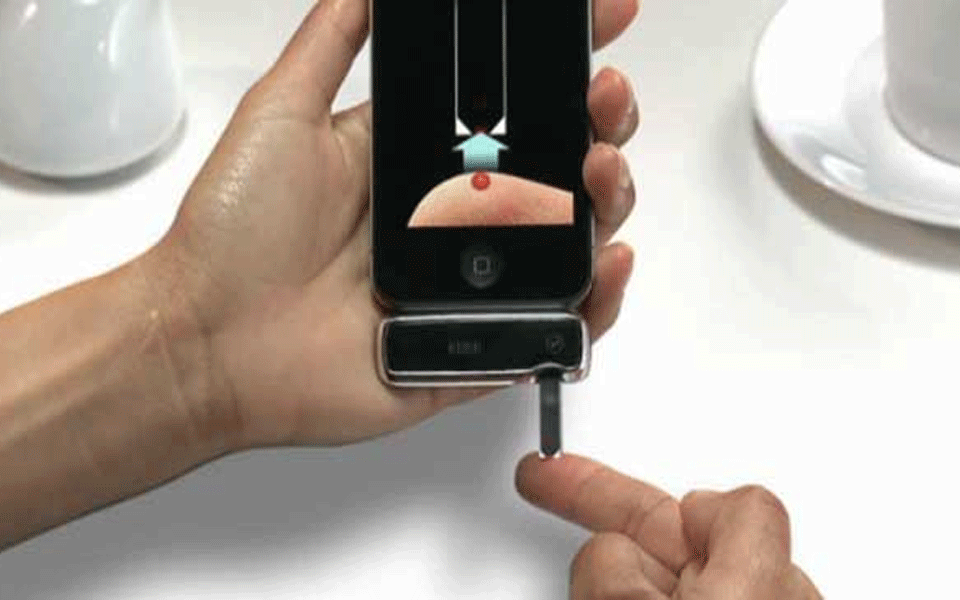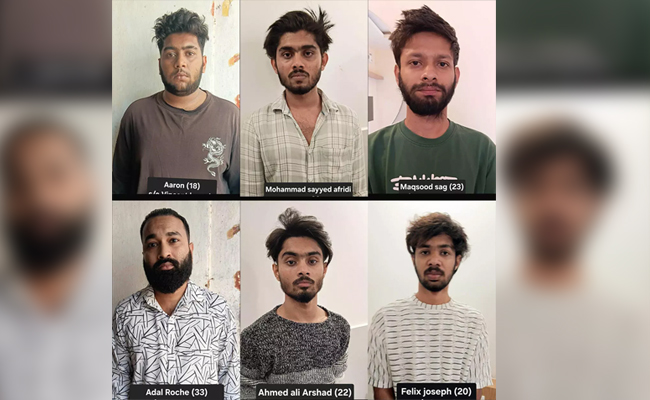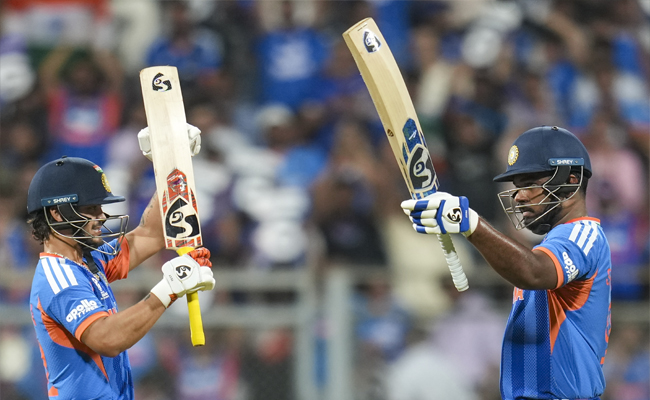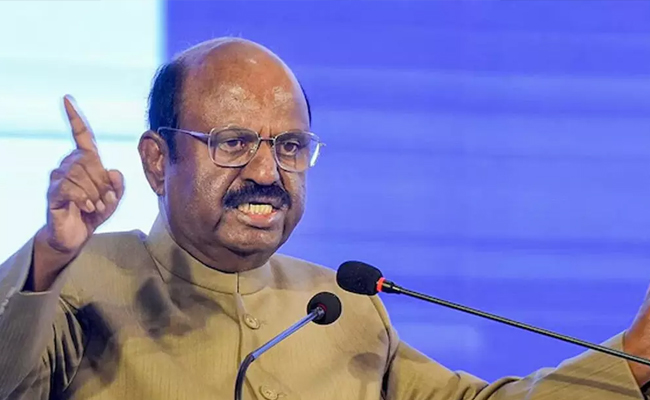New York: Researchers have developed a cellphone-based blood test technology that can provide immediate results in the comfort of one's home or a doctor's clinic, thereby cutting visits to the laboratory.
In a paper published in the journal Biosensors and Bioelectronics, the researchers detailed a mobile version of the "Enzyme Linked Immunosorbent Assay" (ELISA), the gold standard technique used to detect the presence of an antibody or antigen.
"ELISA is an important technology for biochemical analysis of proteins and hormones and is critical for the diagnosis of many diseases, such as HIV and Lyme Disease," said corresponding author Anna Pyayt, Assistant Professor at the University of South Florida in Tampa, US.
"But the machines required for the incubation and reading are expensive and bulky," Pyayt said.
Instead of sending patients to a laboratory, the new cellphone-based technology - Mobile Enzyme Linked Immunosorbent Assay (MELISA) -- allows for the very same test to be conducted in the doctor's office, clinic or even in a remote area.
"The MELISA allows patients to undergo testing and obtain results at point-of-care," Pyayt said.
The device accurately measures progesterone levels, a key hormone that impacts female fertility and is indicative of some cancers.
It consists of a water bath heater that incubates samples at a target temperature and analyses them via images taken by mobile phone.
The device uses colour analysis to determine the RGB (red, green, blue) colour components of each sample.
The blue colour component is used for further analysis due to its sensitivity to the changes in progesterone concentration.
"It is designed to make biomedical testing simple and affordable. When low cost testing can be integrated with routine clinic visits, this would greatly improve the quality of healthcare and detect worrisome signs earlier," Pyayt added.
The portable MELISA weighs less than half a kg, and the researchers believe that it has the potential help older patients suffering chronic conditions and those across the world.
Let the Truth be known. If you read VB and like VB, please be a VB Supporter and Help us deliver the Truth to one and all.
Bengaluru (PTI): Leader of Opposition in the Karnataka Assembly R Ashoka on Thursday took a dig at CM Siddaramaiah ahead of the state Budget presentation, claiming that the government is expected to borrow Rs 1.15 lakh crore and is likely to impose fresh taxes on the people.
He said the Budget would have nothing new, adding that its highlights would be criticism of Prime Minister Narendra Modi and repeated mentions of the five guarantee schemes ('Shakti', 'Gruha Lakshmi', 'Gruha Jyoti, 'Yuva Nidhi' and 'Anna Bhagya').
Chief Minister Siddaramaiah, who also holds the Finance portfolio, is scheduled to present the 2026–27 Budget on March 6. This will be his record 17th budget.
“Siddaramaiah-led Congress government’s budget will be presented tomorrow. While Finance Minister Nirmala Sitharaman reduced the tax burden in the Union Budget, Siddaramaiah is known for imposing taxes on people. He imposes about four taxes a month and has already introduced 36 taxes, and is now looking for ways to impose more,” Ashoka said.
Speaking to reporters, he said the Congress had promised people before coming to power that the guarantee schemes would be implemented without imposing any burden on them.
“By the end of the chief minister’s term, the state’s total debt will probably exceed Rs 6 lakh crore. The government has already breached financial discipline. Siddaramaiah and his government are somehow managing the situation,” Ashoka claimed, adding that his borrowings as CM equal those of 12 or 13 former chief ministers combined.
Stating that the Budget should create higher revenue sources, ensure that no burden is placed on people, and take the state away from debt, the opposition leader said this could be ensured only by a “clever and intelligent finance minister.”
“Anyone can run a government by pushing the state into debt,” he said, accusing Siddaramaiah of “increasing the state’s debt and failing to meet the expectations of the people.”
Highlighting that Siddaramaiah blames the previous BJP government for everything, Ashoka said Basavaraj Bommai, the chief minister during the previous BJP government, had presented a “surplus budget,” without excessive borrowings.
“Despite having the opportunity to borrow more while staying within the parameters of financial discipline, he (Bommai) did not do so, as it would burden the people,” he said, accusing Siddaramaiah of borrowing crores of rupees every year.
“I feel that this time too, he will take a loan of Rs 1.15 lakh crore,” he claimed.
The BJP leader said he had written to the CM requesting an allocation of Rs 15,000 crore annually for the development of backward taluks, as recommended by the High Power Committee on Redressal of Regional Imbalance (HPCRRI), chaired by economist Prof M Govinda Rao.
Claiming that the government appears “inactive” due to internal rifts, Ashoka pointed to an ongoing power struggle between factions led by Siddaramaiah and Deputy Chief Minister D K Shivakumar over the CM’s post.
“Amid all this, we cannot expect anything new from this Budget. The CM will repeatedly speak about the guarantee schemes and target the central government and PM Modi. Criticising Modi and repeated mentions of the five guarantee schemes will be the highlight of this Budget. Other than that, there will be nothing new,” he added.
He also dismissed the CM's claim that the government had achieved 90 per cent of the promises made in the previous Budget. “The fact is that not even 9 per cent has been achieved. I have evidence for it,” he said.
Ashoka further alleged that the government had also failed in tax collection, achieving only 48 per cent of the target, and had released less than 40 per cent of the allocated funds to some departments.





